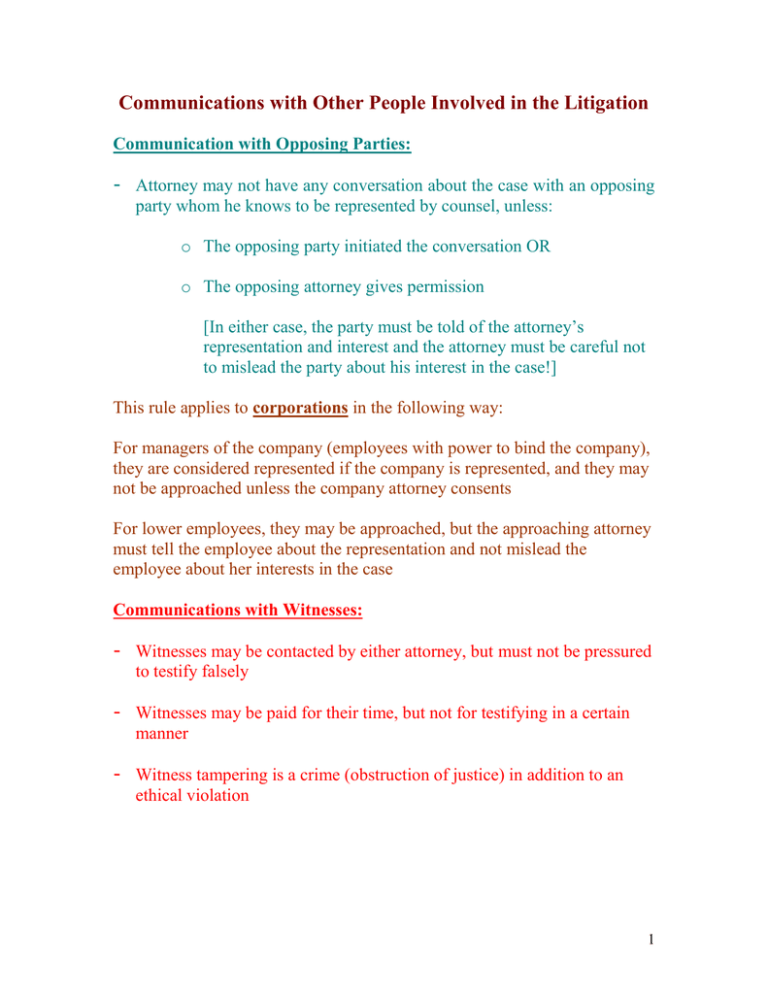Communications with Other People Involved in the Litigation
advertisement

Communications with Other People Involved in the Litigation Communication with Opposing Parties: - Attorney may not have any conversation about the case with an opposing party whom he knows to be represented by counsel, unless: o The opposing party initiated the conversation OR o The opposing attorney gives permission [In either case, the party must be told of the attorney’s representation and interest and the attorney must be careful not to mislead the party about his interest in the case!] This rule applies to corporations in the following way: For managers of the company (employees with power to bind the company), they are considered represented if the company is represented, and they may not be approached unless the company attorney consents For lower employees, they may be approached, but the approaching attorney must tell the employee about the representation and not mislead the employee about her interests in the case Communications with Witnesses: - Witnesses may be contacted by either attorney, but must not be pressured to testify falsely - Witnesses may be paid for their time, but not for testifying in a certain manner - Witness tampering is a crime (obstruction of justice) in addition to an ethical violation 1 Other Miscellaneous Demands on Attorney Conduct - A legal professional must not tamper with the jury pool by announcing prejudicial or untrue facts to the media before a case (though the First Amendment and the right to public trial allow the attorney to give some information about the case to the public). - An attorney may never take an affirmative step to conceal or destroy evidence; but may not turn over evidence either if it will violate the rules of confidentiality - A prosecutor has a Constitutional responsibility to turn over exculpatory evidence to a criminal defendant 2
